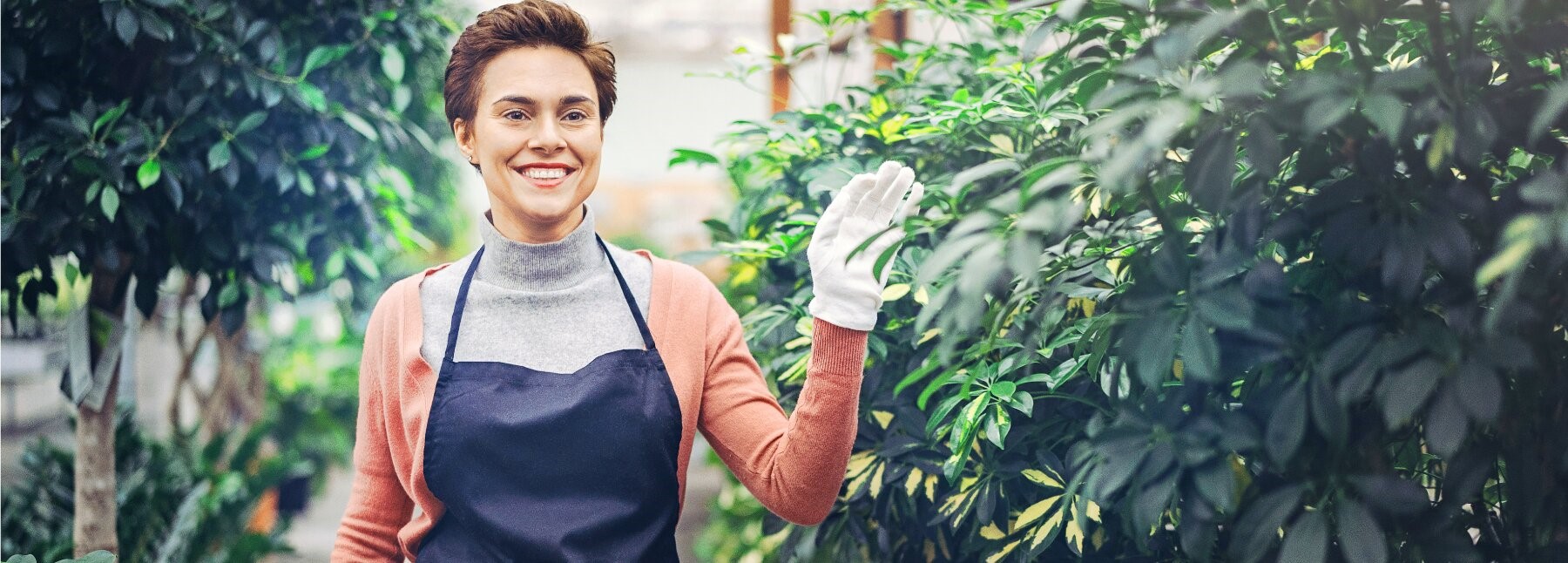Everything we do in our day-to-day lives has an impact on the planet - from the food we eat and the clothes we wear to the car we drive. Making the shift towards a more sustainable lifestyle will not only help to make a positive impact on the planet for future generations, but it can also improve your health and wellbeing.
If you can incorporate even just a few of our top tips for sustainable living into your day to day life, you’ll be doing your part to make the world a better place.
1. Reuse and repurpose
Reduce your need to buy new products. Giving a new life to something you were about to throw away is one of the most eco-friendly things you can do. Glass jars can make great storage containers for pantry items, pen holders or vases, while old socks are great for removing dust around your home. With just a little thought, you can cut down on your ecological footprint, save money and re-purpose your trash too.
2. Eat less meat and more plants
Eating more fruit and vegetables is not just good for you, but it’s also good for the planet. Not only are fruit and veg great sources of fibre, vitamins and minerals that help promote health, they also have a small greenhouse gas and carbon footprint. A vegan diet is a powerful way to improve your health; but even a couple of meat-free days a week will make a big impact.
3. Use less plastic
It takes millions of years for plastic to decompose. Cutting down on plastic bottles, coffee cups and plastic bags seems obvious, but it’s one of the most effective ways to reduce your waste. Invest in a ceramic or stainless steel reusable cup for your morning coffee, when grocery shopping bring a reusable tote bag, and consider using beeswax wraps instead of clingfilm.
4. Conserve water and energy
Being mindful of how you’re using energy will not only save you money, but it’s a great way to reduce your carbon emissions. Adopting some simple eco-conscious habits can make a world of difference to the sustainability of the planet - unplug your devices when you’re not using them, turn off switches on standby appliances, turn off lights when you’re not in the room, turn the heating down, dry your clothes on a washing line, swap out your old light bulbs for LED lights, or switch off the tap while brushing your teeth.
5. Start meal-planning to reduce food waste
Cut down on food waste by planning out the meals you want to prepare for the following week. Meal-planning in advance can also save your waistline, and improve your health. Write down the ingredients you need and stick to the list when you do the grocery shop.
6. Grow your own
Growing your own fruit and veg is a great way to reduce your carbon footprint, it’s healthier and more nutritious, and it saves you money too. If you don’t have space for a vegetable patch, buy locally grown and seasonal food. It’s also possible to find plants that grow well in pots placed on window sills and balconies.
7. Use eco-friendly cleaning products
Avoid using home cleaning products that contain toxic chemicals or bleach. Repeated exposure to these cleaning products not only affect the environment but your health as well. Use natural alternatives such as white vinegar, baking soda or lemons.
8. Make sustainable transport choices
Choosing to walk, cycle or take public transport is another way to be more sustainable in your day to day life. It’s not only better for the environment, but for your bank balance and your health too. Car-pooling can also cut down on emissions. Taking the ferry or a staycation at home are also great ways to reduce your carbon footprint.
9. Buy second-hand
Give second-hand goods a new lease of life. Go thrift shopping for clothes or furniture for your home at charity shops, flea markets, vintage stores, and online marketplaces. By shopping sustainably, chances are if you find something you love, it will be one of a kind.
At Allianz Partners we believe that building a sustainable business means caring for our customers, caring for our staff and also caring about the wider world we live in and the people we share the world with. Learn more about how we are working towards are more sustainable future.



